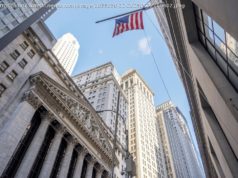Gadgets sold without batteries. Toys sold in slimmed-down boxes or no packaging at all. These are some of the ways consumer product companies are retooling their wares to reduce costs and avoid raising prices as President Donald Trump levies new import taxes.
— Gadgets sold without batteries. Toys sold in slimmed-down boxes or no packaging at all. More household goods that shoppers need to assemble themselves.
These are some of the ways consumer product companies are retooling their wares to reduce costs and avoid raising prices as President Donald Trump levies new import taxes on key trading partners as well as some materials used by American manufacturers.
The economic environment in which the president has imposed, threatened and occasionally postponed repeated rounds of tariffs is more precarious than during his first term. U.S. consumers are feeling tapped out after several years of inflation. Businesses say tariffs add to their expenses and eat into their profits, but they are wary of losing sales if they try to pass all of the increase on to customers.
Instead, some companies are exploring cost-cutting options, both ones that consumers likely would notice in time — remember “shrinkflation?” — and ones that exist too far down the supply chain for them to see. The changes may help minimize price increases yet won’t be enough in every case to offset them completely.
These are some of the strategies retailers and brands have in mind:A kink in the supply chain
After putting an extra 20% tariff on all goods from China, as well as a 25% tariff on imported steel, aluminum and automobiles, Trump said he would announce on Wednesday the targets of “reciprocal tariffs” that mirror the taxes all other nations apply to certain U.S. exports.
He argues the tariffs will spur domestic manufacturing, among other goals.
Also on the horizon: twice-delayed tariffs on most goods from Canada and Mexico, and duties on copper, lumber and pharmaceutical drugs.
Kimberly Kirkendall, president of supply-chain consulting firm International Resource Development, has told clients — U.S. makers of shelving, home goods and food products — that given all the uncertainty, this is not the time for long-term moves like seeking factories outside of China.
She encouraged them to focus on the short term, particularly the need to scrutinize product lines from every angle for possible savings.
“You’ve got to collaborate and work together with your suppliers in this situation to be able to bring costs down,” Kirkendall said.
Home
United States
USA — Financial No batteries? Thinner packaging? US businesses look for ways to offset tariffs






